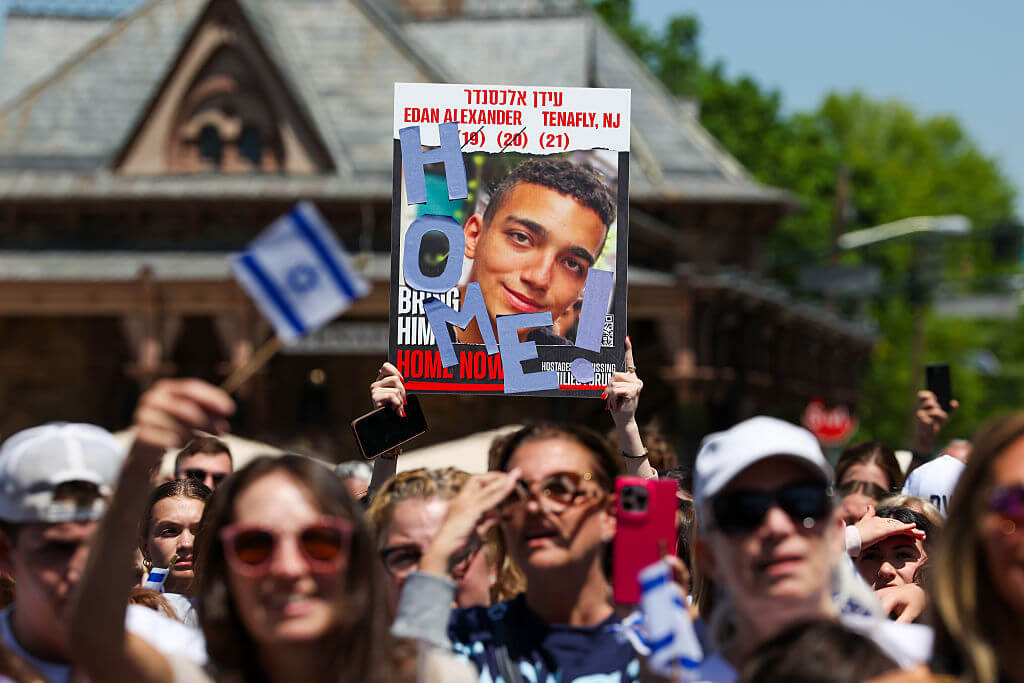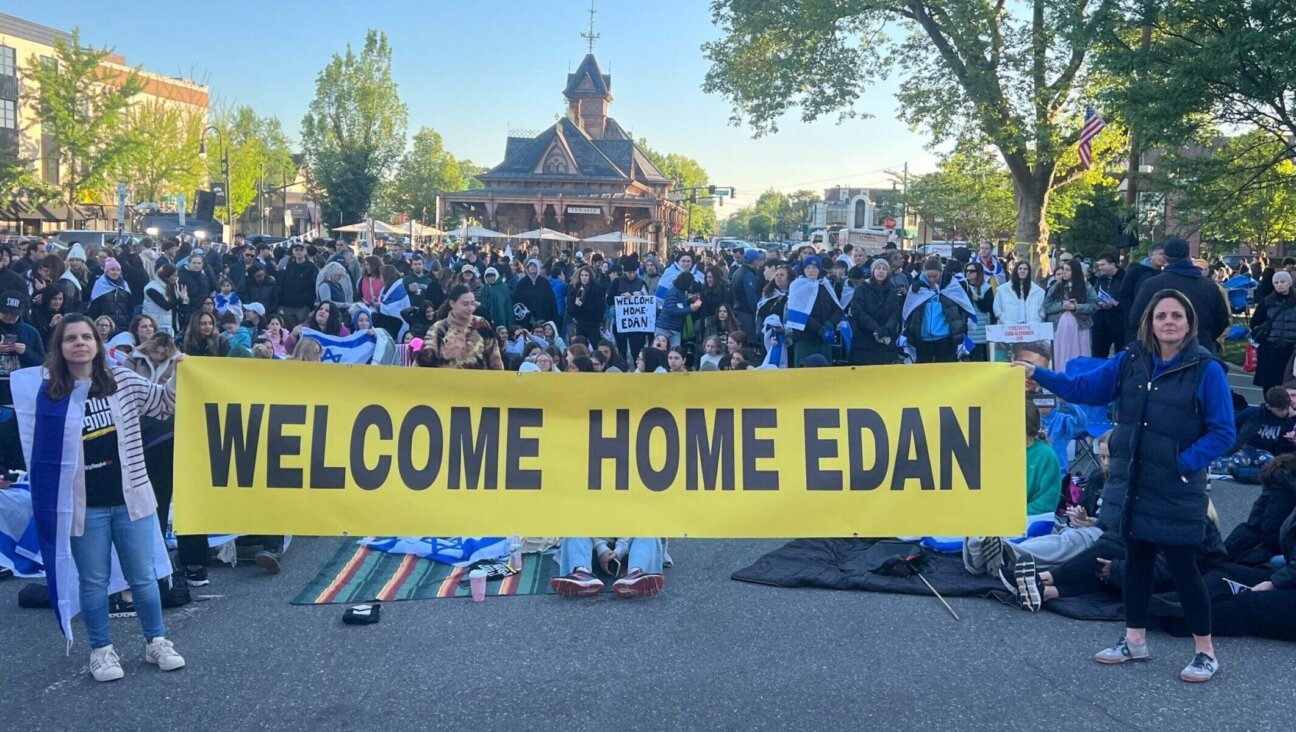One rabbi’s lifesaving solution to help Odessa’s vulnerable Jews: jerry-rigged car batteries
Rabbi Avraham Wolff is trying to raise money for 357 heating units — one for each apartment where a Holocaust survivor lives
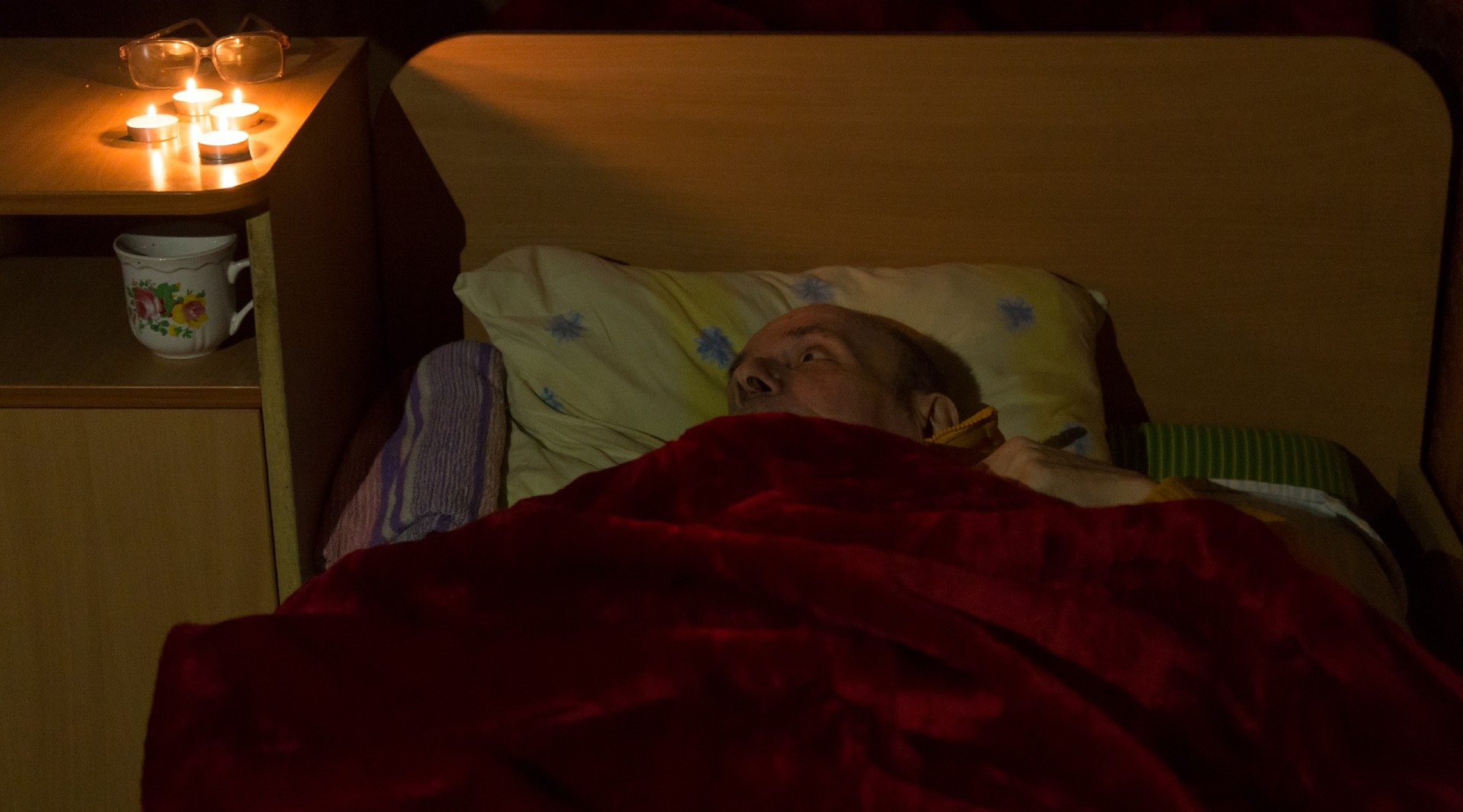
Residents of Odessa, Ukraine, get electricity for just six hours per day, leaving them in the cold and dark most of the time. (Courtesy of Mishpacha Odessa)
This winter, the city of Odessa, Ukraine, feels like the heart of darkness.
The city is constant bombardment by the Russian military, freezing nighttime temperatures commonly fall below zero, and electricity is only available for six hours per day: three in the morning and three at night.
Amid these desperate circumstances, Avraham Wolff, the chief rabbi of Odessa and southern Ukraine, is trying to bring some light — and heat.
He’s doing so with jerry-rigged car batteries to provide warmth and electricity to about 400 Holocaust survivors in the city — the most vulnerable of the vulnerable.
“The ones at greatest risk of starving to death or freezing to death are the Holocaust survivors who were not able to flee this place,” Wolff said in a phone interview from Odessa. “Holocaust survivors are staring death in the face for the second time, and we can’t avert our eyes.”
Wolff is trying to raise $500,000 in funds to purchase heating units powered by car batteries. Placed inside a home, the two car batteries connect to special transistors, which generate sufficient electricity to heat an apartment. Each unit costs $1,400, and Wolff’s organization, Mishpacha Chabad Odessa, is trying to organize 357 units: one for each apartment where a Holocaust survivor lives. Accounting for spouses, the units will provide enough electricity for about 500 people.
This literally can stave off death, Wolff says — not only by providing lifesaving heat, but also the electricity essential to the elderly and frail.
“If they go to the bathroom in the dark and they fall and break their hip, that’s the beginning of the end,” he said. When there is no power, Wolff said, “it’s darkness. But not just darkness. Also cold and hunger.”
About 20,000 Jews remain in wartime Odessa. That’s less than half the Jewish population of 50,000 that was there just a year ago, before Russian invaded Ukraine. Since then, most have fled to safer places either in western Ukraine, elsewhere in Europe or Israel. Odessa’s Jewish schools once taught 1,000 children. Now, only 200 students remain.
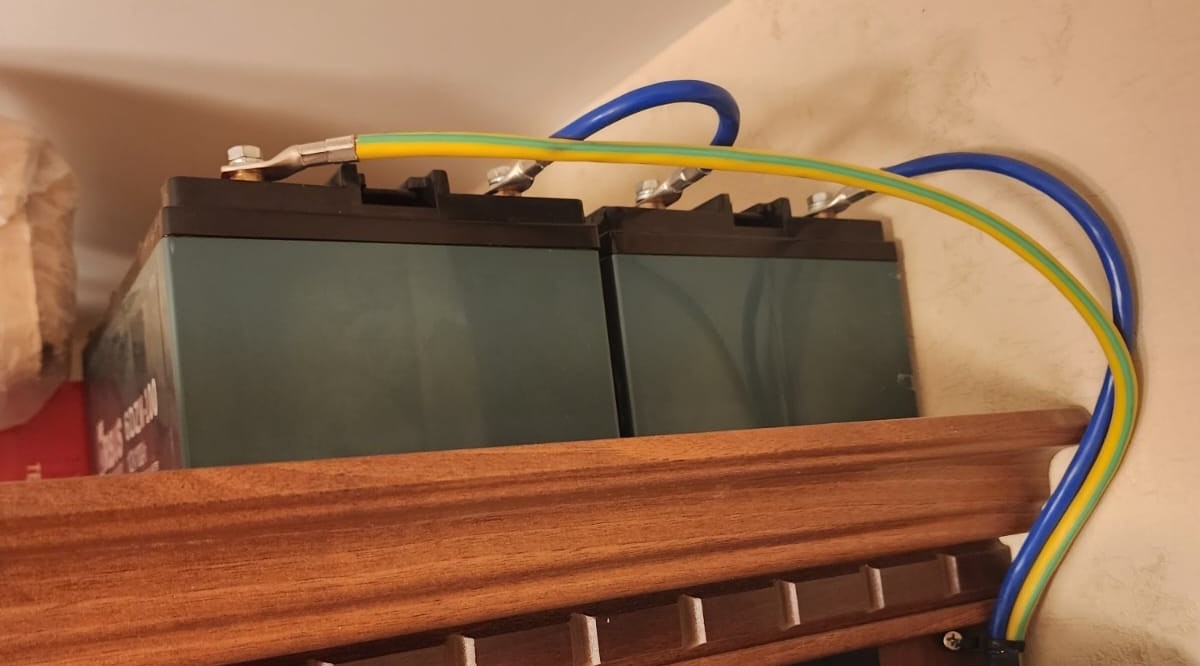
Jerry-rigged heating units use a pair of car batteries connecting to transistors to generate the power needed to heat an apartment. (Courtesy of Mishpacha Odessa)
The Holocaust survivors in their 80s and 90s who remain in the city are either too old or infirm to endure a dangerous journey or unwilling to leave the place where their spouse is buried.
“Someone over 90 cannot start life over as a refugee,” Wolff said.
Air raid sirens go off four or five times a day. Most of the incoming Russian rockets are shot down by defense systems, but there are hits on infrastructure, including power plants. Even the six hours per day of light and heat are not reliable, according to Wolff.
“Two days ago, they hit two power plants, so the city had no electricity for 24 hours,” he said on Monday. “We’re constantly under this pressure. We’ve been living in a war zone for a long time.”
Aside from caring for the Holocaust survivors, Mishpacha Chabad Odessa organizes monthly food deliveries of basic supplies to the homebound Jewish elderly, including such essentials as rice, cooking oil, potatoes, meat and hygiene items, and run Jewish schools and preschools still operating in Odessa.
“We want to help these people not just spiritually, but physically,” the rabbi said. “Elderly Holocaust survivors are currently the highest-risk group, but we help everyone.”
Odessa once was home to the world’s second-largest Jewish community. In the 19th century, the city became a major center of Jewish life and culture, with a large and diverse Jewish population. Many Jewish immigrants came to Odessa during this period, fleeing persecution and poverty in other parts of Europe and the Russian Empire.
Before the Holocaust, one-third of Odessa’s population was Jewish. Then the Nazis came, and Jews were subjected to forced relocation, property confiscation and mass extermination. Approximately 25,000 Jews were killed in the city and its surroundings.
A year ago, before the current war, 1.1 million people lived in Odessa. Hundreds of thousands have fled.
Wolff, 52, has lived in Odessa since 1992, when he came to the country from Israel as an emissary of Chabad, the Jewish outreach movement. When war broke out last February, he left Ukraine temporarily to settle a group of orphans in Germany. Then he returned.
After the Russian invasion, many Ukrainian Jewish communities crumbled. People fled, and Jewish institutions and landmarks like synagogues, community centers and cemeteries were destroyed by Russian bombs.
“There is so much destruction,” Wolff said. “We’re going to do all we can to rebuild, with God’s help.”
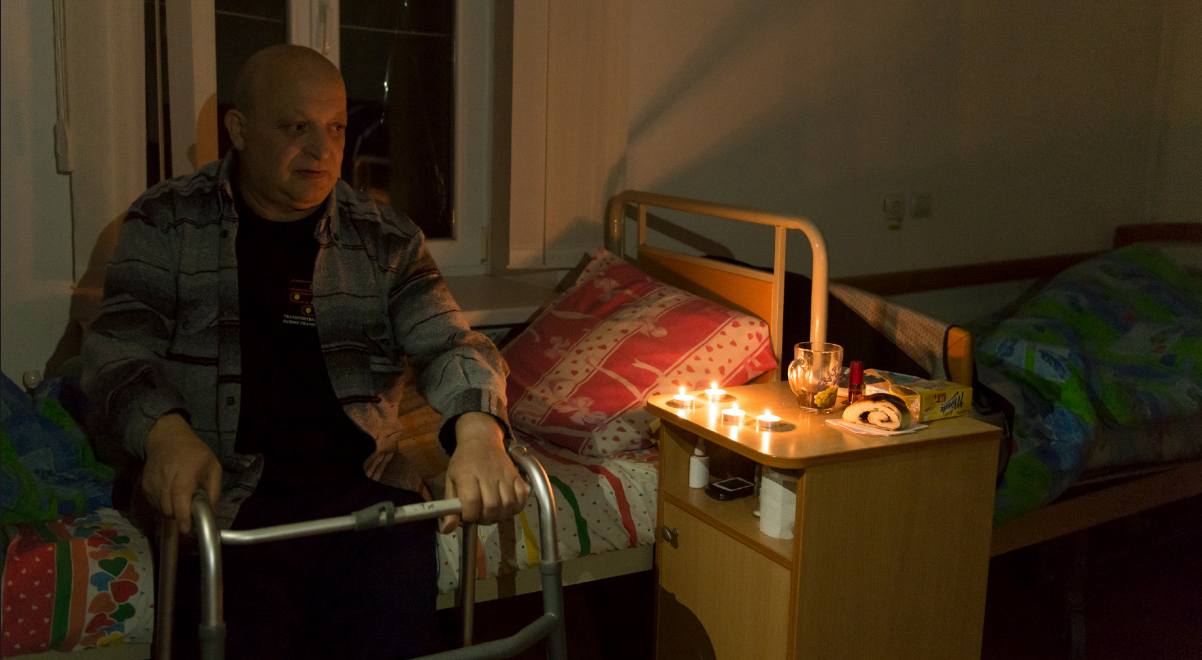
With the Russian military targeting infrastructure like power plants, residents of Odessa, Ukraine, use candles for the scant electricity and heat they provide. (Courtesy of Mishpacha Odessa)
Despite the immense dangers and challenges, Wolff says he is optimistic about the future.
“I’m sure that after Ukraine wins, and life and peace returns, there will be a rapid return of those who left, and I think others will come because there will be an economic and building boom,” Wolff said. “I believe there’s a bright future.”
Part of Wolff’s job as a Jewish leader and Chabadnik is not only to provide physical aid, but positive morale and spiritual inspiration.
“When I was a child, I heard a story from an old Jew who had been imprisoned in Siberia,” Wolff recalled. “One day, he got up and he felt he couldn’t say Modeh Ani” — the Jewish morning prayer of gratitude — “because the Russian authorities had taken everything from him: his house, wife, yeshiva, grandkids, tefillin, kippah, tzitzit. He was all alone in a Siberian prison with nothing. But then he realized that the one thing Stalin couldn’t take from him was the ability to say Modeh Ani.”
Even in these grim times, Wolff said, there is a spirit that Russian President Vladimir Putin, who is prosecuting this war, cannot take away from Ukraine’s Jews.
“There’s a war, there are challenges, nothing is easy. It’s dark, it’s cold,” Wolff said. “But the ability to smile Putin didn’t take from us and can’t take away. This is what I try to show the community. In the end we’ll win, so let’s smile now, too.”
Those interested in supporting this effort can make a contribution here to fund the battery-powered heating units being deployed to help Odessa’s Holocaust survivors survive this winter.
This article originally appeared on JTA.org.
The Forward is free to read, but it isn’t free to produce

I hope you appreciated this article. Before you go, I’d like to ask you to please support the Forward.
Now more than ever, American Jews need independent news they can trust, with reporting driven by truth, not ideology. We serve you, not any ideological agenda.
At a time when other newsrooms are closing or cutting back, the Forward has removed its paywall and invested additional resources to report on the ground from Israel and around the U.S. on the impact of the war, rising antisemitism and polarized discourse.
This is a great time to support independent Jewish journalism you rely on. Make a gift today!
— Rachel Fishman Feddersen, Publisher and CEO
Support our mission to tell the Jewish story fully and fairly.
Most Popular
- 1

Fast Forward Ye debuts ‘Heil Hitler’ music video that includes a sample of a Hitler speech
- 2

Opinion It looks like Israel totally underestimated Trump
- 3

Culture Is Pope Leo Jewish? Ask his distant cousins — like me
- 4

Fast Forward Student suspended for ‘F— the Jews’ video defends himself on antisemitic podcast
In Case You Missed It
-

News In Edan Alexander’s hometown in New Jersey, months of fear and anguish give way to joy and relief
-

Fast Forward What’s next for suspended student who posted ‘F— the Jews’ video? An alt-right media tour
-

Opinion Despite Netanyahu, Edan Alexander is finally free
-

Opinion A judge just released another pro-Palestinian activist. Here’s why that’s good for the Jews
-
Shop the Forward Store
100% of profits support our journalism
Republish This Story
Please read before republishing
We’re happy to make this story available to republish for free, unless it originated with JTA, Haaretz or another publication (as indicated on the article) and as long as you follow our guidelines.
You must comply with the following:
- Credit the Forward
- Retain our pixel
- Preserve our canonical link in Google search
- Add a noindex tag in Google search
See our full guidelines for more information, and this guide for detail about canonical URLs.
To republish, copy the HTML by clicking on the yellow button to the right; it includes our tracking pixel, all paragraph styles and hyperlinks, the author byline and credit to the Forward. It does not include images; to avoid copyright violations, you must add them manually, following our guidelines. Please email us at [email protected], subject line “republish,” with any questions or to let us know what stories you’re picking up.







